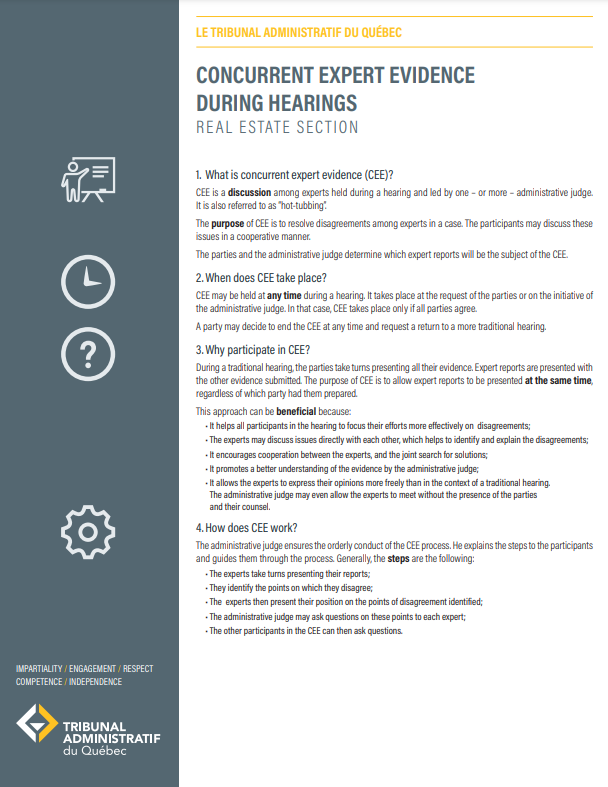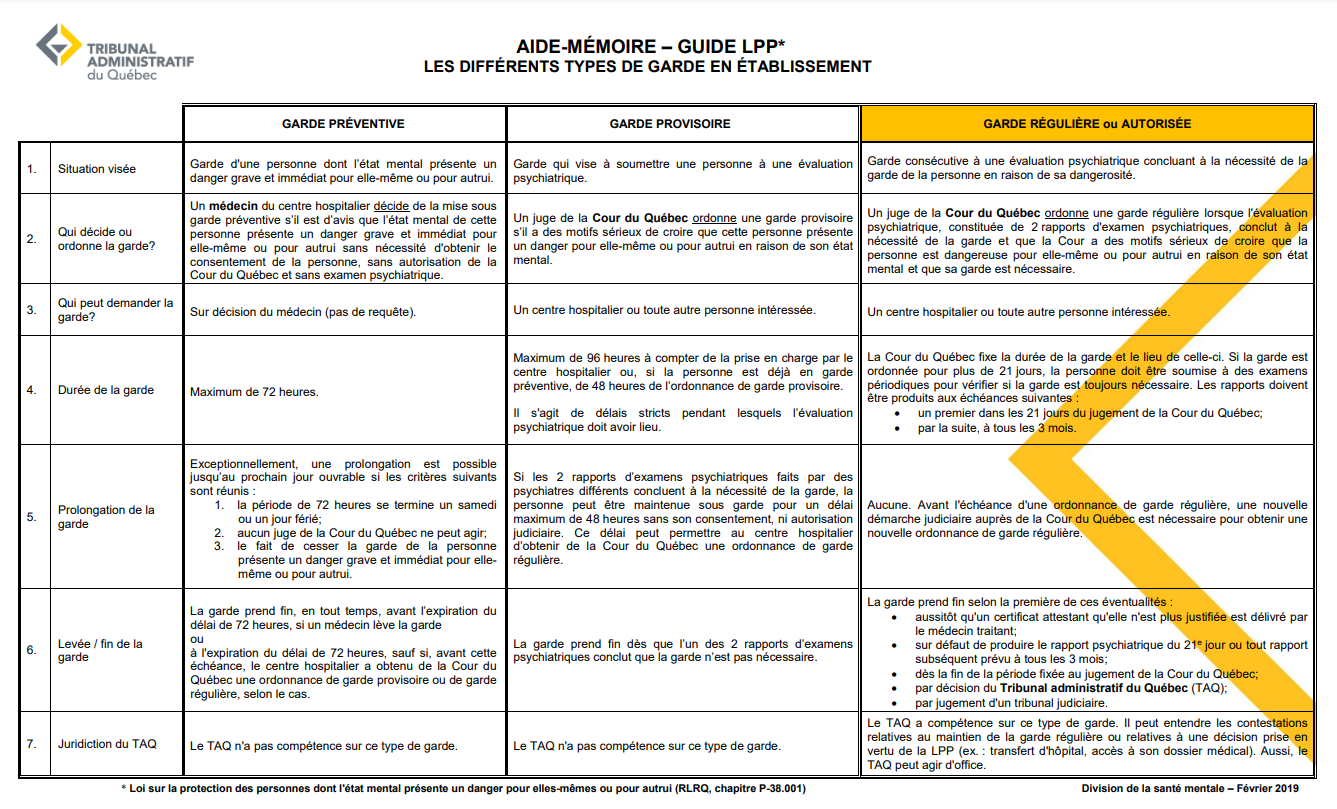Brochures, Guides and Reports

A guide to preparing for an online hearing and conciliation session with Microsoft Teams.
The stage of proceeding

Challenging a governmental decision
You have to address the Tribunal administratif du Québec if you wish to contest a decision rendered concerning you by a department, an agency (boards, commissions, hospitals, etc.) or a municipality. When you file a proceeding with the Tribunal, it must decide, after a hearing, if the decision you are contesting should be changed, reversed or confirmed

It is important that you prepare for the hearing. The effort you devote to your preparation may have a direct impact on the decision of the Tribunal.

Conciliation is a simple and efficient way to settle your proceeding without having to go through a hearing. It allows you to discuss and negotiate directly with the representative of a department, agency or municipality and reach an agreement.

Because you are contesting the decision of a department, agency or municipality, it is up to you to prove to the Tribunal that this decision ought to be changed or set aside.
Real estate

Concurrent expert evidence is a collaborative approach that allows the participants to discuss during an hearing to resolve disagreements among experts.
Commission d’examen des troubles mentaux (CETM)

Check-list : Persons confined in a hospital
This document summarizes the various types of confinement in an institution, such as preventive confinement, temporary confinement, and regular or authorized confinement. It also includes information on proceedings in matters of regular or authorized confinement.

La Commission d’examen des troubles mentaux![]()
The Commission d'examen des troubles mentaux du Québec (CETM) is an administrative tribunal created under the Criminal Code . It makes decisions that are enforceable in the same way as those of a court.

I have to appear before the Commission d’examen des troubles mentaux
Pour en savoir plus sur votre comparution devant la CETM.

List of hospitals designated for custody, treatment or evaluation:
- of an accused subject to an assessment or placement decision or order (Criminal Code, section 672.1)
- of a young person (Youth Criminal Justice Act, section 141, paragraph 11)
Organizational

Declaration of services to citizens
The Tribunal's commitments in terms of quality and service delivery to citizens, institutions and organizations.
